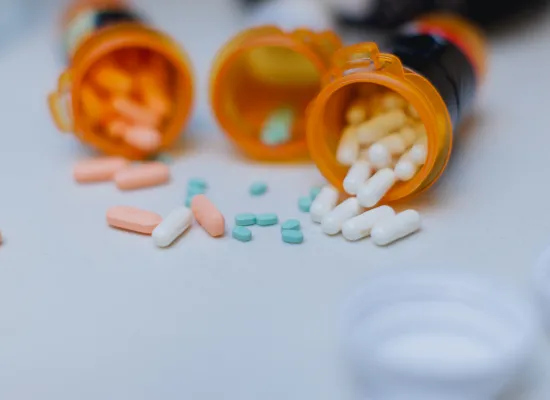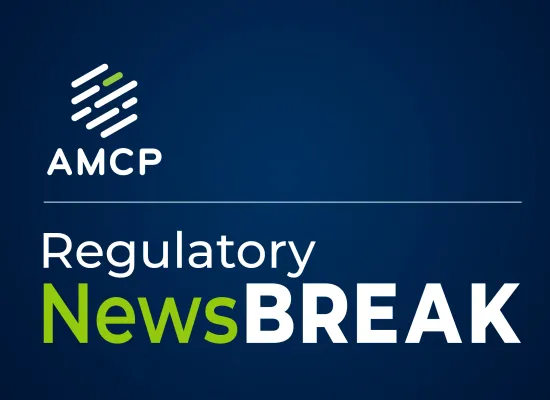White House Issues Executive Order on Drug Pricing
- On April 15, 2025, the Trump administration issued an Executive Order (EO) on prescription drug costs. The EO includes 13 policy directives to various federal agencies:
- Improving the Medicare Drug Price Negotiation Program. Directs HHS to issue guidance for the Initial Price Applicability Year (IPAY) 2028 Drug Price Negotiation Program and to issue guidance on the effectuation of maximum fair prices (MFPs) for IPAYS 2026-2028 within 60 days. The Biden Administration released guidance for IPAY 2026 and IPAY 2027 in October 2024, so the reference to new guidance for these same years suggests the Trump Administration may be reconsidering those policies.
- Stabilizing Part D Premiums. Directs the Assistant to the President for Domestic Policy, in coordination with HHS, OMB, and the Assistant to the President for Economic Policy, to submit recommendations to the President within 180 days on how best to stabilize and reduce Part D premiums.
- Working with Congress to End the Pill Penalty. Directs HHS to work with Congress to amend the IRA to align the treatment of small and large molecule products, as well as other reforms to prevent cost increases to Medicare and its beneficiaries.
- CMMI Model on Drug Pricing. Directs the Secretary to develop and implement rulemaking within 1 year for a CMMI demonstration to obtain better value for high-cost prescription drugs and biological products covered by Medicare, including those not subject to the MFP under the Medicare Drug Price Negotiation Program.
- Survey of Hospital Acquisition Costs of Covered Outpatient Drugs. Directs HHS to publish a plan to conduct a hospital acquisition cost survey within 180 days and, following such survey, to propose adjustments to align Medicare payment with the cost of acquisition.
- During the first Trump administration, CMS proposed a major change in Medicare reimbursement policy for the 340B program wherein a 340B covered entity would have been paid at a rate of ASP minus 22.5% instead of ASP plus 6%, to reflect the lower acquisition costs for 340B-acquired drugs. That policy was ultimately struck down by the Supreme Court because the Medicare statute requires CMS to set payment rates based on a hospital acquisition cost survey data.
- Medicaid Drug Pricing Reform. Directs the OMB Director, the Assistants to the President for Domestic and Economic Policy, and HHS to provide recommendations to the President on how to ensure accuracy in manufacturer payments of Medicaid drug rebates, how to promote innovation in Medicaid drug payment methodologies, how to link payments for drugs to value obtained, and how to support States in managing drug spend.
- Lowering Insulin and Epinephrine Prices for Health Center Patients. Directs HHS to ensure, within 90 days, that section 330 grants made to health centers are conditioned on the health center ensuring certain low-income patients have access to insulin and injectable epinephrine at or below the 340B acquisition cost. Eligible patients would be those who: (1) have a high-cost sharing requirement, (2) have a high unmet deductible, or (3) have no health insurance.
- Value Chain Reforms. Directs the Assistant to the President for Domestic Policy — in coordination with HHS, OMB, and the Assistant to the President for Economic Policy—to make recommendations within 90 days on how to best to promote “a more competitive, efficient, transparent, and resilient pharmaceutical value chain that delivers lower drug prices for Americans.”
- Accelerating Generics, Biosimilars, and OTC Medications. Directs FDA to issue a report providing administrative and legislative recommendations within 180 days on how best to: (1) accelerate approval of generics, biosimilars, combination products, and second-in-class brand name medication; and (2) improve the process through which prescription drugs can be reclassified as OTC.
- Increasing Importation: Directs FDA to take steps to streamline the ability of states to obtain approval for drug importation within 90 days.
- Site Neutral Policies: Directs HHS to propose regulations that would ensure Medicare payment does not encourage drug administration in more costly sites of care (i.e. hospital outpatient department vs. physician office) within 180 days.
- PBM Fee Disclosure: Directs the Secretary of Labor to propose regulations within 180 days to “improve employer health plan fiduciary transparency into the direct and indirect compensation received by pharmacy benefit managers.”
- Anticompetitive Behavior by Manufacturers: Directs HHS to conduct a join listening session with DOJ, Commerce, and the FTC within 180 days and to issue a report with recommendations “to reduce anti-competitive behavior from pharmaceutical manufacturers.”
For questions, please reach out to Vicky Jucelin.
Featured News & Resources
See Full Calendar
Other Events
Award Applications Open
Webinars
AMCP eLearning Day: Nexus Encore
National Meetings
AMCP 2026 Registration Opens
Upcoming Events
AMCP offers a wide variety of educational opportunities, from events and webinars to online training.







